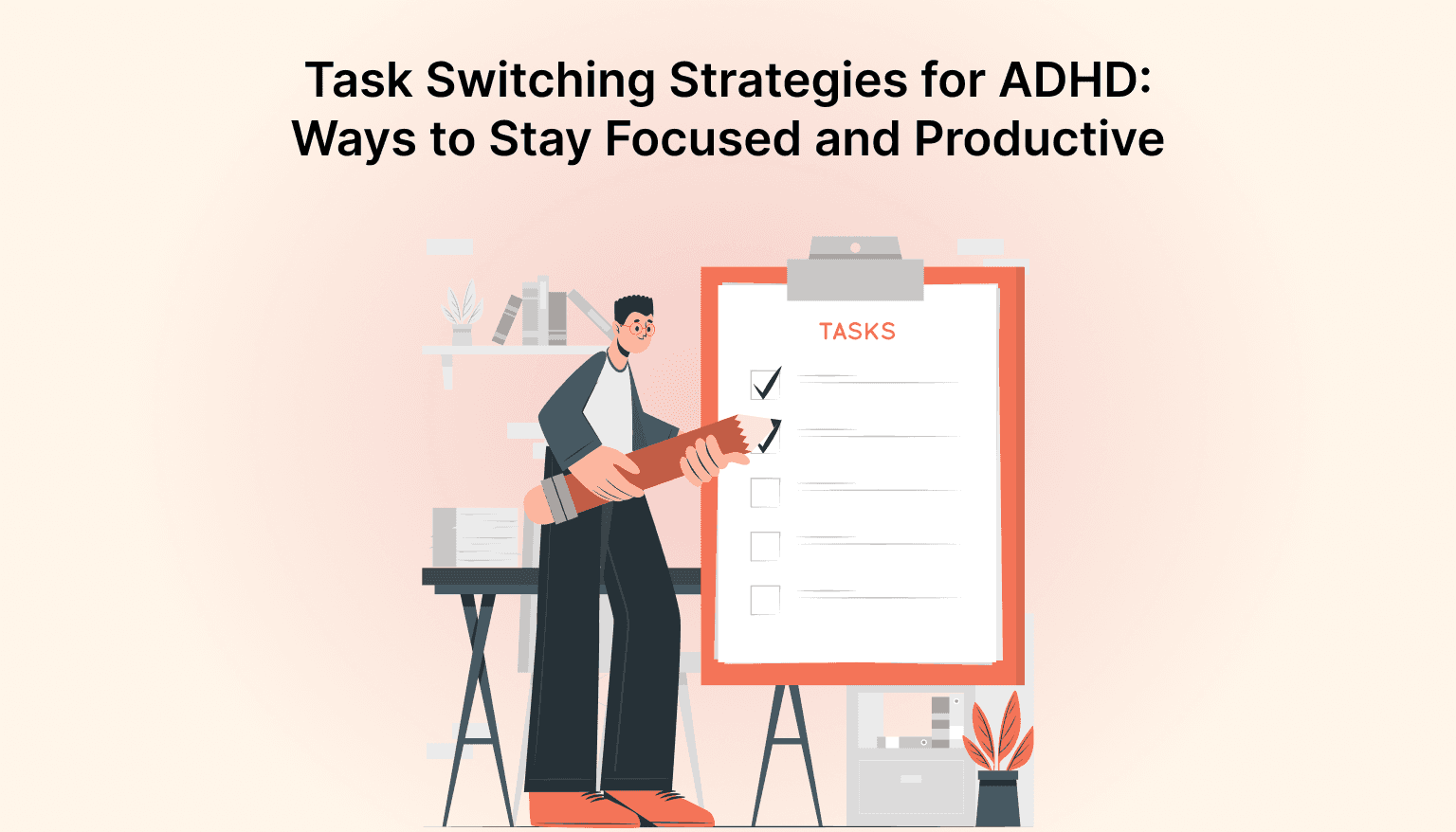The Importance of Time Management in the Workplace
9
Do you often find yourself busy all day yet making little progress on the projects that matter most? You’re not alone. Many professionals get stuck in a cycle of scattered tasks, constant notifications, and nonstop meetings. According to recent data from the American Psychological Association (APA), 55% of adults in the United States report experiencing stress during the workday.
It’s a familiar struggle, feeling overwhelmed but not truly productive. A recent Slack report revealed that users who rely on AI features to summarize conversations and deliver quick answers save an average of 97 minutes every week.
The positive part is that you can shift this pattern. By practicing effective time management, you gain control of your day, ease stress, and channel your energy into meaningful work. For busy professionals, whether founders, developers, or freelancers, this skill isn’t optional; it’s a powerful edge that can define your career success.
Key Takeaways
Time management boosts productivity, reduces stress, and strengthens professional credibility.
Poor time management often leads to stress, lower-quality work, poor work-life balance, and missed opportunities.
Techniques like the Eisenhower Matrix, time blocking, and focusing on one task at a time help improve efficiency.
Managers support success by setting priorities, building a positive culture, and providing the right tools.
Technology can streamline workflows, but overcoming procrastination and digital distractions is equally essential.
What is Time Management?
Time management is essentially about structuring and planning how you use your time across different tasks. It’s the ability to intentionally direct your time so you can work more efficiently, stay effective, and boost overall productivity.
Contrary to what some might think, it’s not about finding more hours in the day. Instead, it’s about making smarter choices with the hours you have. This means prioritizing, planning, and focusing on one task at a time. Ultimately, effective time management is the art of being intentional with your time.
Knowing what time management is makes it easier to understand its impact. Let’s explore why it’s so important for your professional life.
Why is Time Management Important in the Workplace?

Time is your most valuable resource. When you use it wisely, you’re not just planning your day; you’re laying the groundwork for long-term professional growth. Here’s why effective time management matters:
Take Control of Your Productivity
Frequent interruptions make it harder to regain focus. By managing your time well, you reduce distractions and create dedicated blocks for deep, meaningful work. This leads to higher output and better results.
Manage Stress Before It Manages You
Feeling behind schedule or stretched across too many tasks is a major cause of workplace stress. Strong time management eases that pressure, giving you a sense of control and a calmer mindset throughout the day.
Build Trust Through Consistency
Consistency builds credibility. When you complete projects promptly and uphold strong standards, colleagues and leaders see you as reliable. This builds trust, earns recognition, and creates new career opportunities.
Knowing why time management matters is only half the story. It’s just as important to understand the impact of poor time management on your performance and well-being.
What is the Impact of Poor Time Management
Struggling to manage your time doesn’t just mean missing a deadline; it creates a chain reaction that affects your productivity, well-being, and even your professional growth.
Rising Stress and Anxiety: Constantly racing against the clock and juggling too many tasks can leave you in a state of ongoing stress. Over time, this leads to burnout, lower job satisfaction, and the feeling that you’re always playing catch-up.
Drop in Productivity and Quality: Last-minute work often sacrifices accuracy and creativity. When you’re in firefighting mode, mistakes are more common, and the quality of your output suffers, eventually hurting your credibility.
Risk to Your Professional Reputation: Missing deadlines, showing up late, or delivering rushed work can make you seem unreliable. Over time, this damages trust with colleagues and clients, limiting your chances for recognition or advancement.
Weakened Work-Life Balance: When tasks spill beyond working hours, personal time takes the hit. Without space for rest, hobbies, or family, it affects you physically and mentally.
Missed Opportunities: Inefficient time management leaves little room for growth and improvement. Deadlines pile up, leaving no bandwidth to take on exciting projects, build new skills, or move your career forward.
Now that you know what impact poor time management has, let’s dive into some practical strategies you can use to master it.
Key Techniques for Improving Time Management

Mastering time management is a gradual process that requires a mix of strategy and self-awareness.
1. The Eisenhower Matrix
This simple but powerful technique helps you prioritize tasks based on their urgency and importance. You can categorize every task on your to-do list into one of four quadrants.
Quadrant | Description | Action |
Urgent & Important | Crises, deadlines, pressing problems. | Do it immediately. |
Not Urgent & Important | Strategic planning, relationship-building, and self-improvement. | Schedule it. |
Urgent & Not Important | Interruptions, some emails, and non-critical meetings. | Delegate it. |
Not Urgent & Not Important | Time-wasters, distractions, busywork. | Delete it. |
Focusing on the “Not Urgent & Important” quadrant is key to long-term success.
2. Time Blocking and Energy Planning
Time blocking involves dividing your day into set chunks, with each block focused on a single task. To get the best results, combine it with energy matching, scheduling your most important work during the hours when you’re at your peak.
3. Combat Multitasking with Single-Tasking
Multitasking is a myth. When you think you’re doing two things at once, you’re actually just rapidly switching between tasks. This reduces focus and increases errors. Instead, dedicate your full attention to one task at a time.
4. Making a Task List
Writing tasks down provides clarity and reduces mental clutter. A separate “today’s priorities” list helps prevent overwhelm.
5. Taking Regular Breaks
Short breaks throughout the day refresh your focus and boost productivity. Stepping away from your desk can also offer a new perspective.
6. Minimizing Distractions
A tidy workspace, limited social media use, and set focus times can improve your concentration.
7. Parkinson’s Law
Parkinson’s law explains that work expands to fill the time you give it. Without clear deadlines, tasks usually take longer than necessary and often fall prey to procrastination or distractions.
While these techniques are effective, time management isn’t only about personal effort. Having the right support system can significantly improve your success.
Also Read: How to Improve Time Management Skills in 2025: 5 Strategies That Actually Work
Why Managers Matter in Time Management
Effective time management is a shared responsibility. While your personal habits matter, strong leadership and a supportive company culture create the environment where productivity truly thrives.
1. Lead by Example
Managers who effectively manage their own time by setting boundaries and prioritizing tasks send a clear message. This shows that productivity and focus are valued. It also sets a positive example for the entire team.
2. Set Clear Expectations and Priorities
One of the biggest time-wasters is a lack of clarity. Managers play a crucial role in defining clear goals and priorities for their teams. When everyone knows what they should be working on, they can allocate their time more effectively.
3. Foster a Supportive Culture
A culture that values work-life balance is more likely to have employees who feel in control of their schedules. By providing the right tools and encouraging breaks, managers can create an environment where time management is a shared value.
4. Provide the Right Tools
Providing your team with the right tools is essential. A centralized platform that helps everyone manage tasks and visualize schedules can reduce communication overhead and prevent fragmented workflows. This supports a culture of transparency and efficiency.
Alongside personal and team habits, technology is a key driver of effective time management today. Here’s how it makes a difference.
Harnessing Technology for Time Management

With the right tools, you can take control of your time, work more efficiently, and keep your attention on the tasks that have the most impact.
Task Consolidation: Use tools that gather tasks from different platforms into one clear view. This way, you don’t waste time switching between multiple apps, and you always know what needs your attention.
Time Tracking Software: Helps employees monitor where their time goes. This can reveal habits and distractions that are eating into your most productive hours.
Habit-Tracking Software: Helps build consistent habits for improved productivity.
Screen Break Reminders: Encourages healthy work habits.
While the right tools can optimize your schedule and reduce distractions, technology alone isn’t the full answer. To truly master time management, you also need to recognize and tackle the common challenges that often get in the way.
Also Read: 10 Best Scheduling Time Management Methods for Getting Things Done
The Challenges of Time Management
Time management brings huge benefits, but it isn’t always simple. The first step to improving is recognizing the common roadblocks that hold you back and knowing how to overcome them.
Challenge | Why It’s a Problem | Solution |
Procrastination | Delaying tough or complex tasks in favor of easier ones derails your schedule. | Apply the two-minute rule. If it takes under two minutes, do it now. For bigger tasks, break them into smaller steps. |
Digital Overload | Notifications, emails, and messages interrupt focus and scatter your day. | Schedule specific times to check messages. Silence alerts and close extra tabs during deep work. |
Unrealistic Expectations | Overloading your to-do list causes frustration, burnout, and a sense of falling behind. | Plan realistically. Estimate true task times and add buffer space for interruptions. Under-promise, over-deliver. |
Now that you’ve seen the common challenges that hold back productivity, the next step is finding the right tools to overcome them. Akiflow stands out as a platform designed to bring everything together, helping you manage tasks, calendars, and projects in one streamlined system.
How Akiflow Can Help
When tasks and events are scattered across multiple apps, your time and focus get fragmented. An AI virtual assistant (Aki) consolidates everything into one dashboard, giving you a clear structure to manage your time effectively and stay productive.
Akiflow is a powerful productivity platform. It’s designed to help you implement these time management strategies effectively. It integrates tasks from all your favorite apps like Slack, Notion, and Asana into a single, organized dashboard. This eliminates the chaos of scattered to-do lists. You can easily drag and drop tasks onto your calendar to create a time-blocked schedule and protect your time for deep, focused work.
Conclusion
Why is time management important in the workplace? It’s more than just a buzzword; it’s a critical skill that shapes your productivity, well-being, and career growth. The challenges of a fast-paced workplace are real, but they’re not unbeatable. By adopting strategies like time blocking, using smart technology, and working within a supportive culture, you can take control of your schedule and focus on the work that truly drives value..
The investment you make in managing your time is an investment in your own success. Akiflow can help you with the heavy lifting, acting as your command center to bring order to the chaos.
Ready to reclaim your time? Try Akiflow for free to take control of your schedule and master your workflow.
FAQs
Q1. How do I manage time when my schedule keeps changing?
Focus on flexible daily planning. Use a tool that lets you quickly move tasks, and start each day by reviewing and re-prioritizing based on urgency.
Q2. What’s the most effective time management strategy?
Time blocking is an effective strategy. Assigning fixed calendar slots to tasks keeps you realistic about your workload and shields you from distractions.
Q3. Can digital tools really improve time management?
Absolutely. The right tool centralizes tasks, shows your workload clearly, and automates repetitive scheduling, so you can spend more energy on work instead of managing it.
Q4. What are the five reasons time management is important?
Managing your time well gives you an edge both at work and in life. Here are five key reasons:
It boosts productivity by helping you focus on key tasks.
It reduces stress by keeping deadlines under control.
It improves work quality since you’re not rushing.
It supports career growth through consistent results.
It creates a better work-life balance with time for personal priorities.




